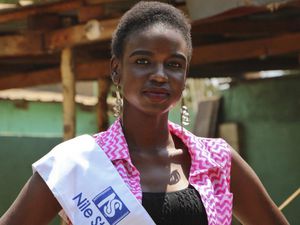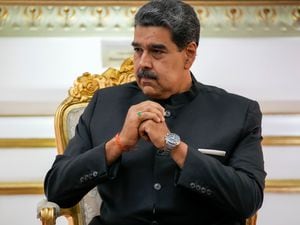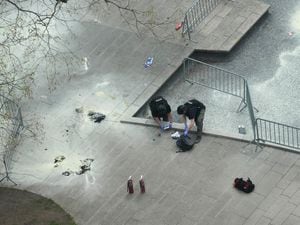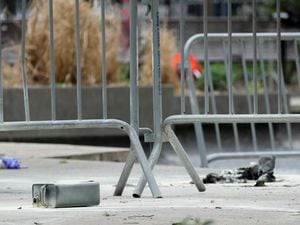Miss World pageant held in civil war-torn South Sudan
The first round of auditions among around 60 applicants for this year’s event will begin in the coming weeks, with the winner to be announced in August.

A Miss World beauty pageant will be held in South Sudan, amid ethnic violence, famine and mass displacement during five years of civil war.
Dozens of young women are using the international beauty pageant to advocate for peace at home and abroad. Contestants have called the event a way to help others and change global perceptions.
Women and girls have been the targets of horrific violence and abuse during South Sudan’s conflict. For the vast majority of people in the deeply impoverished East African country, the annual beauty pageants are unknown or simply a dream.
However, organisers are determined to deliver on the theme “beauty with a purpose”.
Held in Freedom Hall, the main event venue for the elite of the capital, Juba, the pageant bears the signatures of any beauty contest worldwide. The young women compete on stage in front of hundreds of people and are judged on appearance and performance as well as intellect.
The Miss World qualifying pageant launched in 2011, the year South Sudan gained independence from Sudan.

Last year’s Miss South Sudan, Arual Longar, said she is using her influence to preach love and unity in her conflict-torn country.
“South Sudan is a place of war,” the 25-year-old said. “But it can’t stop us from achieving things.”
Shelina Doro, a women’s protection officer with the United Nations, said: “This is a positive thing for women.” Even though beauty pageants can be open to interpretation, she said that at the moment in South Sudan, “this is what we have”.
Since winning the Miss South Sudan title four years ago, 25-year-old Modong Manuela said she has been given an unprecedented platform to travel the country advocating for girls’ education rights.
“I’ve been able to give back to my community,” Ms Manuela said. “Every time I talk, girls say: ‘OK, it’s possible to access things to study and become an important, empowered person.'”
After winning the pageant, Ms Manuela created her own line of reusable sanitary towels that allow girls to attend school while they are menstruating, a challenge for many young women across Africa.
However, Funmi Balogun, a women’s rights activist working with UN Women in South Sudan, said of the event: “It continues to perpetuate stereotypes of women, providing unrealistic expectations to young women and girls that looks are the most important when they could be focusing on other things that show the whole range of skills and capacities that they have.”
However, organisers said not only has the pageant been successful in drawing attention to the plight of girls in the country, it also makes it more socially acceptable for women to work hard and show their intelligence – with a wider impact on a global scale.
Clara Benjamin, a former supermodel who is involved with the contest, said it encourages the country’s women to be proud of their looks.
“It’s the epitome of being comfortable in your own skin,” she said. “We’ve been taught to be beautiful and black and proud and gorgeous.”





